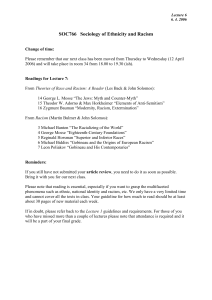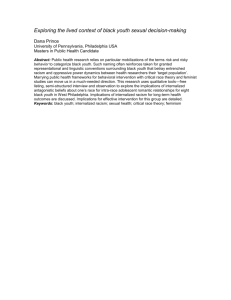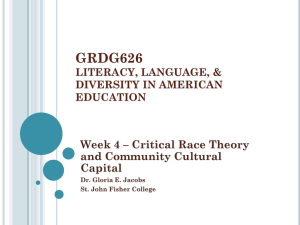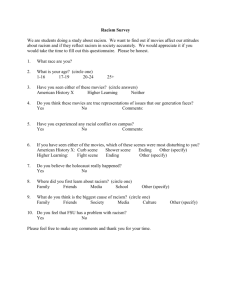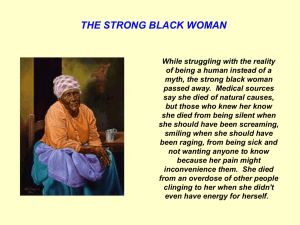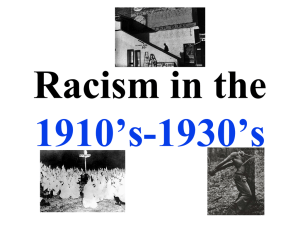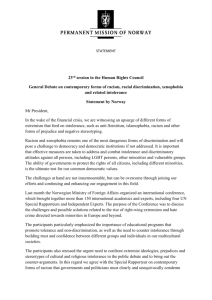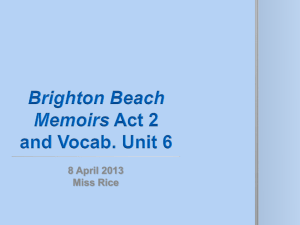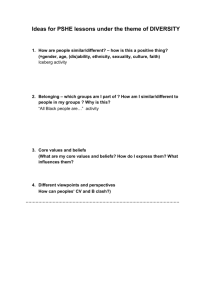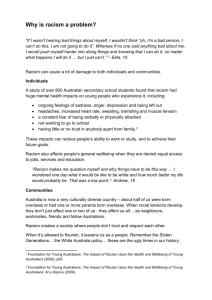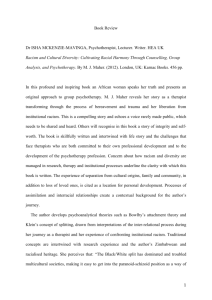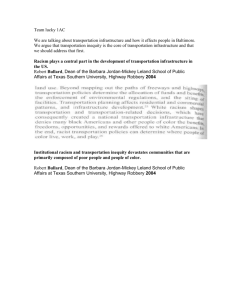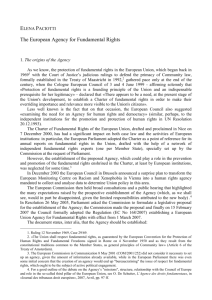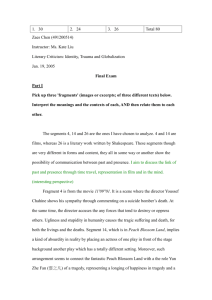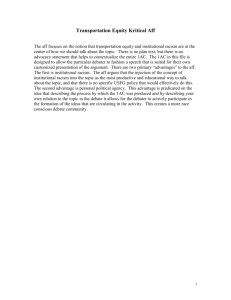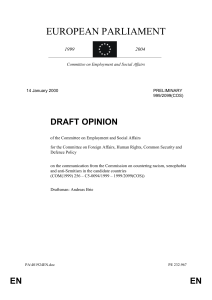Active Citizenship Foundation-Hungary
advertisement
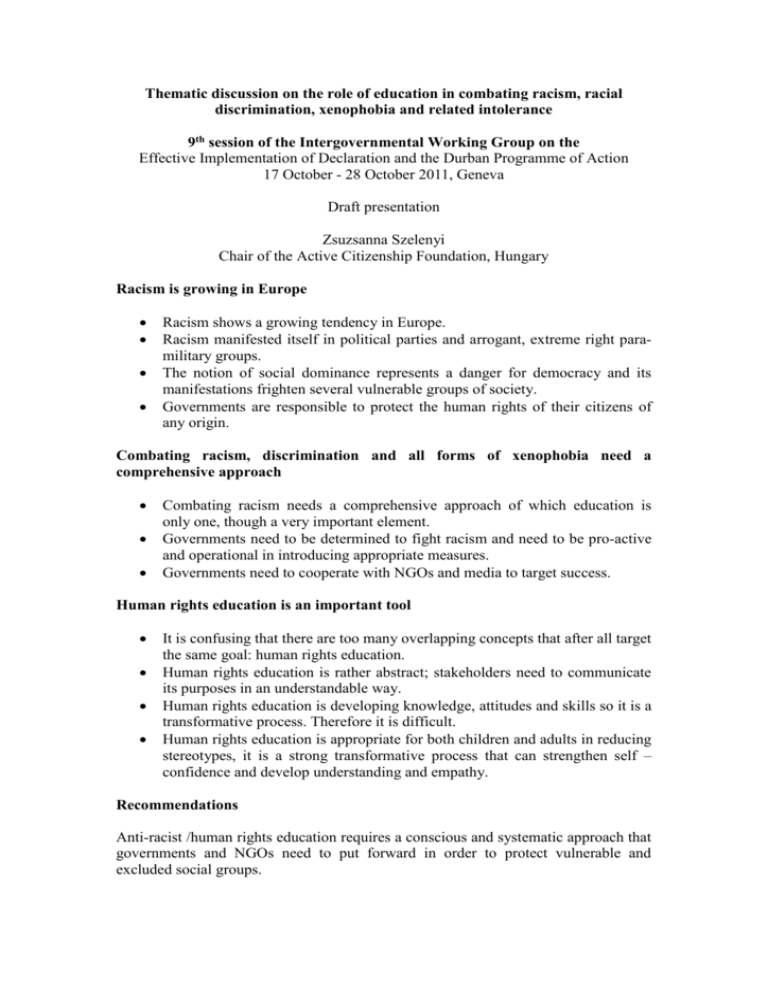
Thematic discussion on the role of education in combating racism, racial discrimination, xenophobia and related intolerance 9th session of the Intergovernmental Working Group on the Effective Implementation of Declaration and the Durban Programme of Action 17 October - 28 October 2011, Geneva Draft presentation Zsuzsanna Szelenyi Chair of the Active Citizenship Foundation, Hungary Racism is growing in Europe Racism shows a growing tendency in Europe. Racism manifested itself in political parties and arrogant, extreme right paramilitary groups. The notion of social dominance represents a danger for democracy and its manifestations frighten several vulnerable groups of society. Governments are responsible to protect the human rights of their citizens of any origin. Combating racism, discrimination and all forms of xenophobia need a comprehensive approach Combating racism needs a comprehensive approach of which education is only one, though a very important element. Governments need to be determined to fight racism and need to be pro-active and operational in introducing appropriate measures. Governments need to cooperate with NGOs and media to target success. Human rights education is an important tool It is confusing that there are too many overlapping concepts that after all target the same goal: human rights education. Human rights education is rather abstract; stakeholders need to communicate its purposes in an understandable way. Human rights education is developing knowledge, attitudes and skills so it is a transformative process. Therefore it is difficult. Human rights education is appropriate for both children and adults in reducing stereotypes, it is a strong transformative process that can strengthen self – confidence and develop understanding and empathy. Recommendations Anti-racist /human rights education requires a conscious and systematic approach that governments and NGOs need to put forward in order to protect vulnerable and excluded social groups. In case of human rights education (and the similar concepts: anti-racist-, peace- or citizenship education) both the formal and non-formal educational settings need to be concerned. In formal education there are various issues to consider: Achieving higher level of education does not mean more tolerance per se. Education policy in general should implement a right-based approach. Anti-segregation policy and inclusive education can have the best possible impact in combating racism and achieving equal opportunities among young people of different background. Schools need to be organized in a participative way, where both students and parents are involved in school decision-making. Teachers themselves need to undergo human rights education as personal behavioral models convey the most important messages to children and young people. Human rights education achieves better results if it appears throughout the entire school life than if it is taught in a specific class. Human rights education can achieve good results if every child is participating in it in a given community. This is why schools can make a difference. In non-formal education: Students and children participate in different non-formal programs that offer great opportunity to be used for human rights education in a fun way. Human rights education requires an experimental and interactive environment; therefore non-formal settings are very appropriate for HRE.


